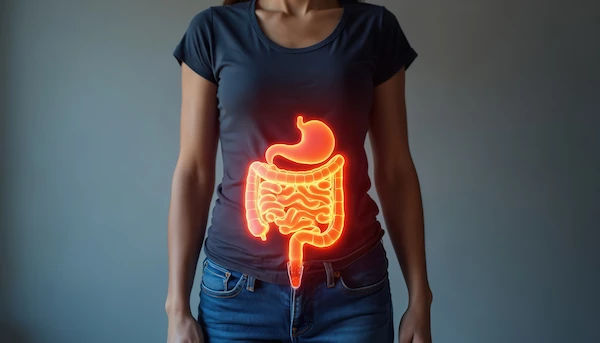What Tests Should You Do for Persistent Stomach Pain?
Experiencing ongoing stomach pain? Discover the best tests—LFT, USG, CBC, and more—to identify causes and book abdominal packages at Apollo 24|7.

Written by
Last updated on 1st Aug, 2025

What Tests Should You Do for Persistent Stomach Pain?
Persistent stomach pain is not just uncomfortable. It can be a sign that something more serious is going on inside your body. For adults between the ages of 20 and 50, unexplained abdominal discomfort can interfere with daily life, disrupt your eating habits, and raise serious health concerns if left unchecked. Whether the pain is dull, cramping, burning, or sharp, it's essential to understand what might be causing it and how to investigate it properly.
This article provides a detailed guide on the right diagnostic approach, including the key tests that can help uncover the underlying cause of your stomach pain. We will also explore a modern diagnostic angle, an abdominal test package that includes liver function tests (LFT), and pancreatic markers, all in one convenient panel. If you’ve been searching for the right stomach pain test, this guide will give you clarity and actionable insights.
Why Persistent Stomach Pain Should Not Be Ignored?
Stomach pain that lasts for more than a few days, recurs frequently, or worsens over time should always be taken seriously. While occasional bloating or indigestion can be due to dietary habits or stress, persistent pain may indicate:
- Gastritis or ulcers
- Gallstones or liver issues
- Pancreatitis
- Irritable bowel syndrome (IBS)
- Inflammatory bowel diseases (e.g., Crohn’s disease, ulcerative colitis)
- Food intolerances (e.g., lactose or gluten)
- Appendicitis
- Infections or parasitic infestations
- Early signs of gastrointestinal cancer
Proper diagnosis starts with the right combination of history-taking, physical examination, and importantly, diagnostic testing.
Importance of Diagnostic Tests in Identifying Abdominal Issues
Doctors rely on tests to gather internal data that cannot be identified through physical examination alone. These tests help:
- Determine whether the pain is due to an issue with the liver, pancreas, gallbladder, or stomach
- Detect infections or inflammation
- Identify organ damage or tumours
- Rule out complications such as internal bleeding or obstruction
Choosing the right abdominal test package ensures a quicker diagnosis, timely treatment, and fewer visits to the clinic or hospital.
Key Tests for Persistent Stomach Pain
Below are the essential tests typically recommended for adults aged 20 to 50 who are experiencing ongoing abdominal discomfort:
1. Abdominal Ultrasound (USG Abdomen)
- Purpose: Ultrasound is a non-invasive imaging test that uses sound waves to create real-time images of your abdominal organs, including the liver, gallbladder, pancreas, spleen, and kidneys.
- Why It Matters for Stomach Pain: USG helps detect gallstones, liver enlargement, fatty liver, pancreatic cysts or inflammation, kidney stones, and fluid accumulation in the abdomen (ascites). It’s painless and does not involve radiation.
Recommended If You Have:
- Upper right-sided abdominal pain
- Bloating or indigestion
- Unexplained weight loss
- Jaundice
- Suspected liver or gallbladder disease
2. Liver Function Test (LFT)
- Purpose: A blood test that checks how well your liver is working by measuring enzymes, proteins, and bilirubin levels.
- Why It Matters for Stomach Pain: Liver problems such as hepatitis, fatty liver disease, and cirrhosis can cause persistent pain or discomfort in the upper abdomen. LFTs help identify liver inflammation, damage, or bile duct issues.
Includes Parameters Such As:
- SGOT/AST and SGPT/ALT
- ALP (alkaline phosphatase)
- Total and direct bilirubin
- Serum albumin
Recommended If You Have:
- Yellowing of eyes or skin
- Pain in the upper right abdomen
- Chronic alcohol consumption
- History of hepatitis
3. Pancreatic Markers (Serum Amylase & Lipase Test)
Purpose: These blood tests measure the levels of enzymes produced by your pancreas.
Why It Matters for Stomach Pain:
- Elevated amylase and lipase levels may indicate pancreatitis, a potentially serious condition that causes sharp, upper abdominal pain often radiating to the back. It may also be linked to gallstones or alcohol use.
Recommended If You Have:
- Severe upper or mid-abdominal pain
- Nausea and vomiting
- History of alcohol use or gallstones
- Pain after meals
4. Complete Blood Count (CBC)
Purpose: Evaluates the overall health of your blood, red cells, white cells, and platelets.
Why It Matters for Stomach Pain: It can detect infections, inflammation, anaemia (which may occur due to internal bleeding), and other systemic issues contributing to your discomfort.
Get Your Health Assessed Here
Recommended If You Have:
- Fever with abdominal pain
- Fatigue or paleness
- Recent weight loss or poor appetite
5. Stool Test
- Purpose: Analyses the stool sample for infections, parasites, and signs of inflammation or bleeding.
- Why It Matters for Stomach Pain: A stool test can uncover infections like giardiasis or food poisoning and is crucial in diagnosing IBS or IBD when pain is accompanied by diarrhoea or blood in stool.
Recommended If You Have:
- Diarrhoea or constipation
- Blood or mucus in stool
- Travel history to tropical regions
Why Choose an Abdominal Test Package Instead of Individual Tests?
An abdominal test package combines multiple essential tests into one streamlined panel, saving you time, cost, and effort. These packages are especially useful when you have ongoing or vague symptoms where multiple organs could be involved.
Benefits:
- Covers liver, pancreas, kidneys, gallbladder, and GI tract
- Ideal for general screening when diagnosis is unclear
- Less hassle with one-time sample collection
- Often more affordable than booking tests individually
Explore Abdominal Test Packages on Apollo 24|7
When to See a Doctor About Stomach Pain?
While testing helps, it's crucial to consult a doctor if you experience:
- Persistent pain lasting more than a week
- Pain accompanied by vomiting, fever, or weight loss
- Blood in stool or black tarry stools
- Severe pain waking you at night
- Pain after eating fatty foods
Delaying medical attention can result in complications. Your doctor will review your test results and physical examination findings to arrive at a diagnosis and begin appropriate treatment.
What Happens After the Tests?
Once the test results are available, they are usually interpreted in combination. For example:
- High liver enzymes + abnormal USG: May indicate fatty liver or hepatitis.
- Elevated amylase/lipase: Suggests pancreatitis.
- Abnormal CBC with fever: Likely infection.
- Normal tests + pain after meals: Could point to functional disorders like IBS or acid reflux.
If results are inconclusive, your doctor may recommend further imaging like a CT scan or endoscopy.
Preparing for Abdominal Tests
Preparing for abdominal tests is essential to ensure accurate and reliable results. These tests help diagnose a range of conditions affecting the stomach, liver, pancreas, and other abdominal organs. Here are the instructions for preparing for abdominal tests:
- Fasting: Some tests (e.g., LFT, pancreatic markers) require fasting for 8 to 10 hours.
- Hydration: Drink water to make vein access easier for blood draws.
- Medication Disclosure: Inform the lab or doctor of all medications and supplements.
- Follow Instructions: Read the test preparation instructions provided by your diagnostic centre.
Apollo 24|7 simplifies the process by offering online booking, home sample collection, and NABL-accredited lab results, all accessible from the comfort of your home.
Lifestyle Changes That Complement Medical Tests
While diagnostics are vital, your lifestyle choices also impact abdominal health. If your test results indicate gastrointestinal dysfunction, your doctor may advise the following:
- Dietary Adjustments: Your doctor may suggest reducing fried, oily, and spicy foods, as these can irritate the digestive tract. Increasing fibre intake through fruits, vegetables, and whole grains helps promote smoother bowel movements and overall gut health. Identifying and avoiding trigger foods that cause discomfort is also crucial.
- Hydration: Drinking adequate water throughout the day supports proper digestion and helps prevent issues like constipation and bloating. It also aids in nutrient absorption and keeps the digestive system functioning efficiently.
- Exercise: Regular physical activity, such as walking, yoga, or light stretching, stimulates intestinal contractions and enhances bowel motility. This not only supports digestion but also helps relieve symptoms of indigestion and abdominal discomfort.
- Stress Management: Chronic stress can negatively affect your gut by disrupting hormonal balance and slowing down digestion. Incorporating relaxation techniques like yoga, meditation, or deep-breathing exercises can ease tension and support gastrointestinal function.
- Probiotic Intake: After infections or antibiotic use, your doctor may recommend probiotic-rich foods or supplements to restore healthy gut flora. These beneficial bacteria can help improve digestion, reduce bloating, and enhance immunity.
Conclusion
Do not self-medicate or overlook chronic abdominal pain. With an appropriate test for abdominal pain or stomach test set, you are granting your physician rights to diagnosis and treat its cause. Holistic diagnosis with USG, LFT, and pancreatic marker tests offers a suitable modern approach to abdominal assessment. Do not delay until symptoms get severe. If you’re experiencing unexplained or ongoing stomach discomfort, act now. Book an Abdominal Test Package at Apollo 24|7. Your health deserves timely answers, conveniently delivered at your doorstep.


